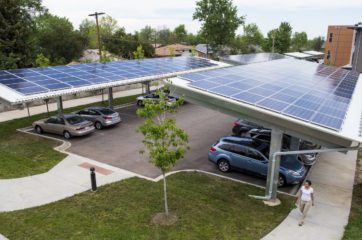As the new legislative session kicked off earlier this month, Pennsylvania set its sights on an ambitious new carbon pricing strategy to combat climate impacts. In late 2018, a coalition of more than 60 entities called on legislators to put a statewide cap on greenhouse gas emissions. The coalition, led by Philadelphia’s Clean Air Council and made up of groups ranging from environmental organizations, religious groups, members of local government, and citizen activists, filed a petition with Pennsylvania’s Environmental Quality Board urging them to adopt the proposed cap-and-trade policy. The basis for their proposed program was modeled after one currently in place in California.
This program would restrict the amount of carbon that the entities most responsible for greenhouse gas emissions are allowed to emit, including large electric power plants, large industrial plants, and fuel distributors. Once these entities reach this limit, they would be able to purchase certificates allowing them to exceed their cap. This revenue can then be distributed among citizens or invested in the clean energy industry. This market based solution to combating greenhouse gas emissions can drastically reduce the amount of pollution as well as stimulate the state’s economy by reinvesting the revenue in other sources of energy: in this case Pennsylvania’s own struggling power plants.
As one of the leaders of the coalition, Professor John Dernbach of the Widener University Commonwealth Law School, told Climate X-Change “The public has a fundamental right under the Pennsylvania Constitution to a stable climate that is not disrupted by human greenhouse gas emissions. We filed the petition to secure that right.” The regulation as proposed would reduce statewide emissions to an amount agreed by the scientific community to be necessary to avoid the worst effects of climate change.
Pennsylvania currently ranks third out of all states in terms of gross carbon emissions, making this potential cap-and-trade program particularly significant. The plan now has the attention of Governor Tom Wolf, who signed an executive order on January 8 which will reduce emissions by 26% from 2005 levels by 2025 and 80% by 2050.
The question is whether a statewide carbon cap-and-trade program can help the state achieve these reductions. In theory, yes, but it will be no easy task. With a Republican majority in both the House and Senate, the Democratic Governor noted that it could prove difficult to get legislative action off the ground. But Governor Wolf has made it clear that combating climate impacts will be a priority for his administration and with so many states mobilizing in the fight against greenhouse gases this session, this petition could serve as the basis for the market-based solution he needs.









